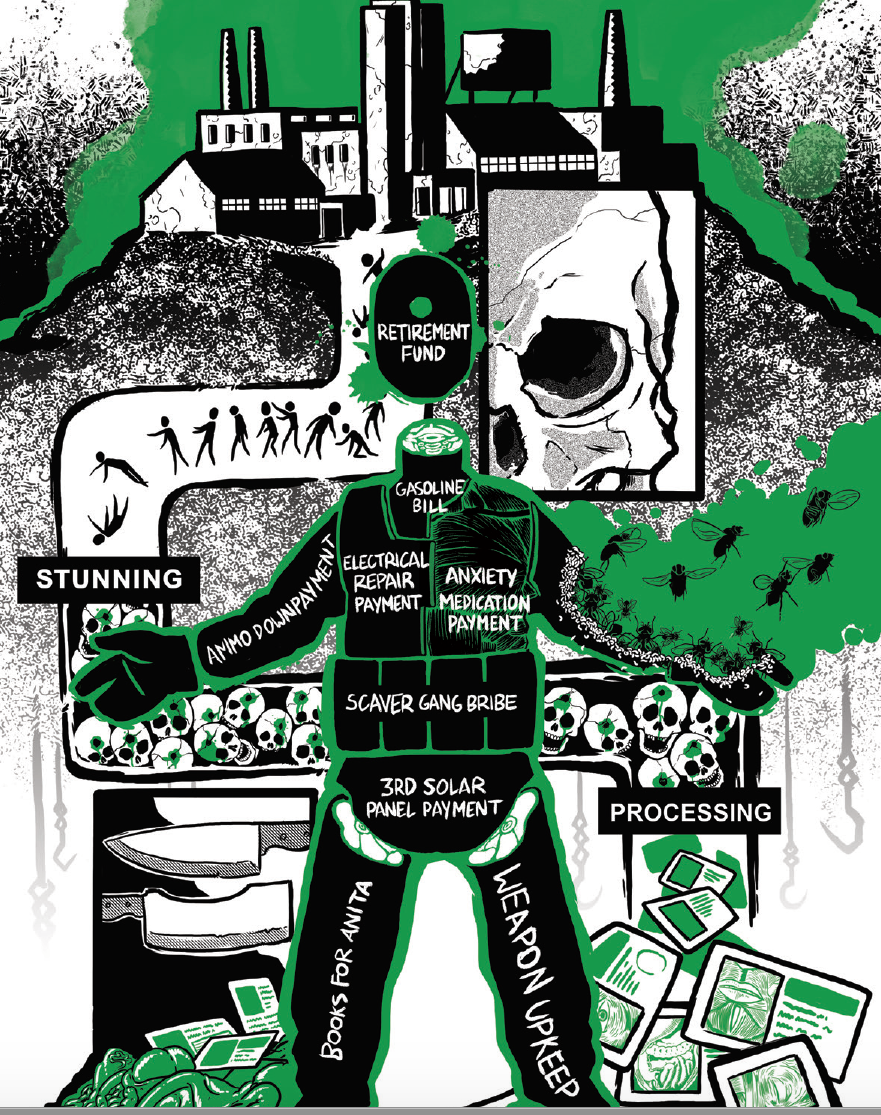Just thought this was interesting.
2 things
(1) I think this shows how much self-reliance has poisoned the western mindset. Bad things happen because of your actions and all that is way overemphasized and if we can slowly chip away at that in “factual” frameworks like medicine hopefully it can cascade into societal responses and how people think about things as well.
(2) Siddhartha Mukherjee’s book The Emperor of All Maladies talks about how recent advances in cancer treatment has actually increased the number of cancer patients worldwide, because they live longer. There’s a specific leukemia that can be essentially kept under control just short of cure (deep cynicism of pharma aside) for decades with a daily medication.
If this research bears fruit it seems like the next few generations might see a new patient population suffering from sleep arousal disorders, needing intervention to wake up if their breathing stops. That is in no way to suggest this shouldn’t happen or is a bad thing - it’s a wonderful possibility that the scientific endeavor and societal progress can support these people! It’s just something that came to mind I thought was interesting.
Is this the same reason we suddenly have a huge population of young adults and kids with peanut allergies? Because they aren’t spontaneously dying of anaphylactic shock at the age of 0.5?
I don’t really know about that but there are a lot of different theories about increases in allergies. One leading theory is that peanut plants or fish or other allergens are susceptible to parasites, so your body detects the parasite or residual proteins in underprocessed foods and kind of lumps it altogether as a threat.
Israel apparently has very low rates of peanut allergies because they have this snack, Bambas (think peanut-flavored cheetohs), that is commonly used for teething toddlers. That’s powder and not peanut butter or whole nuts, so my assumption is it’s way less likely to spur an association between the two.
This was my first thought. Imagine all those parents out there who can finally let their grief and doubt go.
wow thats cool. i always wondered about that like why it was even still a thing that medical science somehow didnt really understand, despite being fairly common as a cause for infant mortality
Butyrylcholinesterase is a potential biomarker for Sudden Infant Death Syndrome
I wish the initial article did a better job of breaking down exactly what was found and why it was significant.
Conditional logistic regression showed that in groups where cases were reported as “SIDS death” there was strong evidence that lower BChE specific activity (BChEsa) was associated with death (OR=0·73 per U/mg, 95% CI 0·60-0·89, P=0·0014), whereas in groups with a “Non-SIDS death” as the case there was no evidence of a linear association between BChEsa and death (OR=1·001 per U/mg, 95% CI 0·89-1·13, P=0·99).
So yes, this does look like a strong correlation. And being able to identify "at-risk" infants, and to provide medical support for them accordingly, is a huge benefit both in terms of reducing infant mortality and managing medical resources (nice not to treat every baby like they're at risk of SIDS when you can narrow the pool down).
But the original article doesn't clarify what the degree of risk actually is, how its screened, or what parents/physicians can do with the information. The article turns very useful information into mere trivia. Very frustrating, particularly to someone who is currently caring for a 3 month old.
Yeah, the study itself is also a little strange. Looks like 67 cases, and the number of controls is like 10? Also, used up to age 2, generally 1 is used for SIDS. But, could be useful for guiding future studies.
There are different forms of sleep apnea for adults. One form, Central Sleep Apnea (CSA), occurs when your brain doesn't send the signals to the muscles that control your breathing. It's literally your brain just forgetting to tell you to breathe. That's kinda what made me link that to this article on SIDS.
And maybe this isn't bad news, but it's not great. Sleep apnea in adults is extremely unlikely to result in immediate death, but will sharply increase your risk for stroke, heart disease and even diabetes.
The article mentions that this should also make it possible to test for, which is even more excellent
This is good news but oooph, it's always hard for me to read about SIDS.
that's good because that is a deeply tragic disease and I hope they cure it
Interesting, wish the study was there. I'm close friends with a pediatrician, I'm gonna ask him if this seems legit. Hoping so!
I wonder if the mic's on cellphones are sensitive enough to "hear" breathing reliably enough to be used as a monitor/alarm?
I also wonder if there's any first aid that parents could do rouse the child when breathing stops?
There are monitors one can purchase that, according to them, check if the baby hasn't taken a breath in a while, and then rouse them (vibration or noise, I assume). I can't speak to how well these work. Never looked into it or used one.
Believable: when I went for sleep testing that's how they measured my breathing. Presumably a baby is quieter, but also doesn't move around as much while sleeping (due to being smaller), so the microphone can be placed closer.





